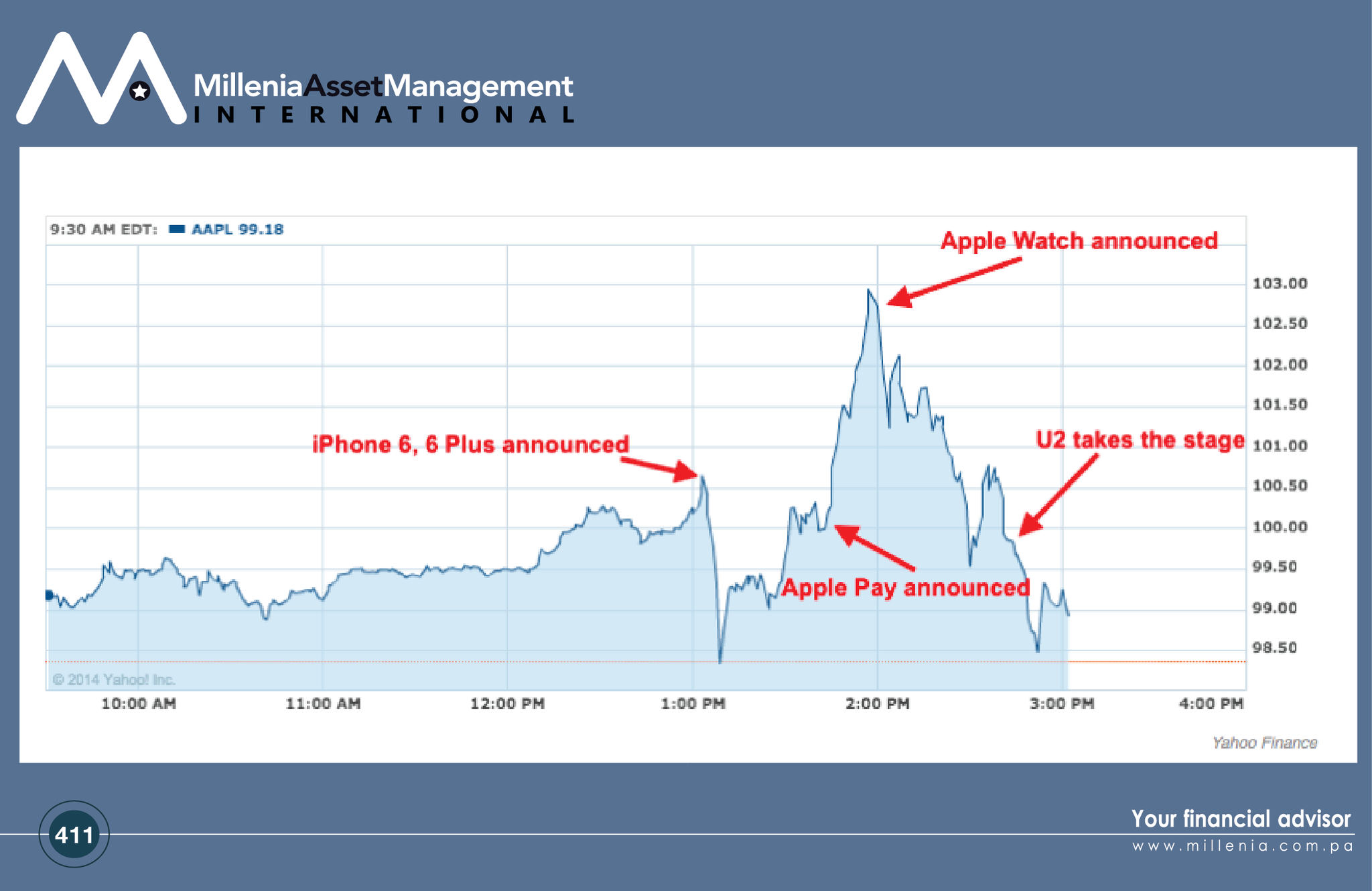
I don't like the term "mobile wallet" in its digital-world significance. The term refers (and I'm quoting from a banking-industry website here) to a smartphone feature that is linked to a user's credit or debit cards "to make payments in person at a physical point of sale." Got it. Not a very complicated idea.
What I don't like about it is the implication that wallets had to become digital in order to be "mobile." Haven't wallets always been mobile? Hasn't that always been the point? A wallet [an "analog wallet" if I need to say that -- a wallet sans phrase] is to be carried, in a woman's purse or a man's pocket. A mobile wallet is now "in" your phone, in some sense of that flexible preposition. I don't really see a significant gain in mobility there.
Anyway, the reason for bringing it up is that Apple has now jumped on the mobile-wallet bandwagon.
The iPay system, the new mobile phone app for the iPhone 6, was the star of the show at the big much-hyped Apple products presentation September 9th.
Look at the chart above. That's the minute-by-minute change in the price of Apple stock on the day of its announcement. The presentation began half-way through the trading day, and as you can see the price was quite calm while waiting for the event to get underway, then a portrait of volatility throughout the rest of the day.
You don't have to expand this window to a larger size to read the various red tags. I'll tell you what they say. The first tag reads, "iPhone 6, 6Plus announced." The market was underwhelmed by that announcement, plunging to the session low immediately thereafter. Then, though it gradually gained ground back, it only got back to a point at almost where it had been before the plunge.
The second red tag reads, "Apple Pay announced." The market took this as the starting gun for a sharp upward move, an upward move that continued right up until the announcement of the new Dick Tracey style Watch. That third tag says "Apple Watch announced." That's when the price headed down again in a big way. Even U2 taking the stage (the fourth tag) didn't calm people down much, and the price almost got back to the earlier session low again before stabilizing and gaining some ground back.
Apple Pay, aka iPay, was clearly the stand-out.
Fine, let's just find some generic terminology for such an app that doesn't give it credit for mobility.
Comments
Post a Comment